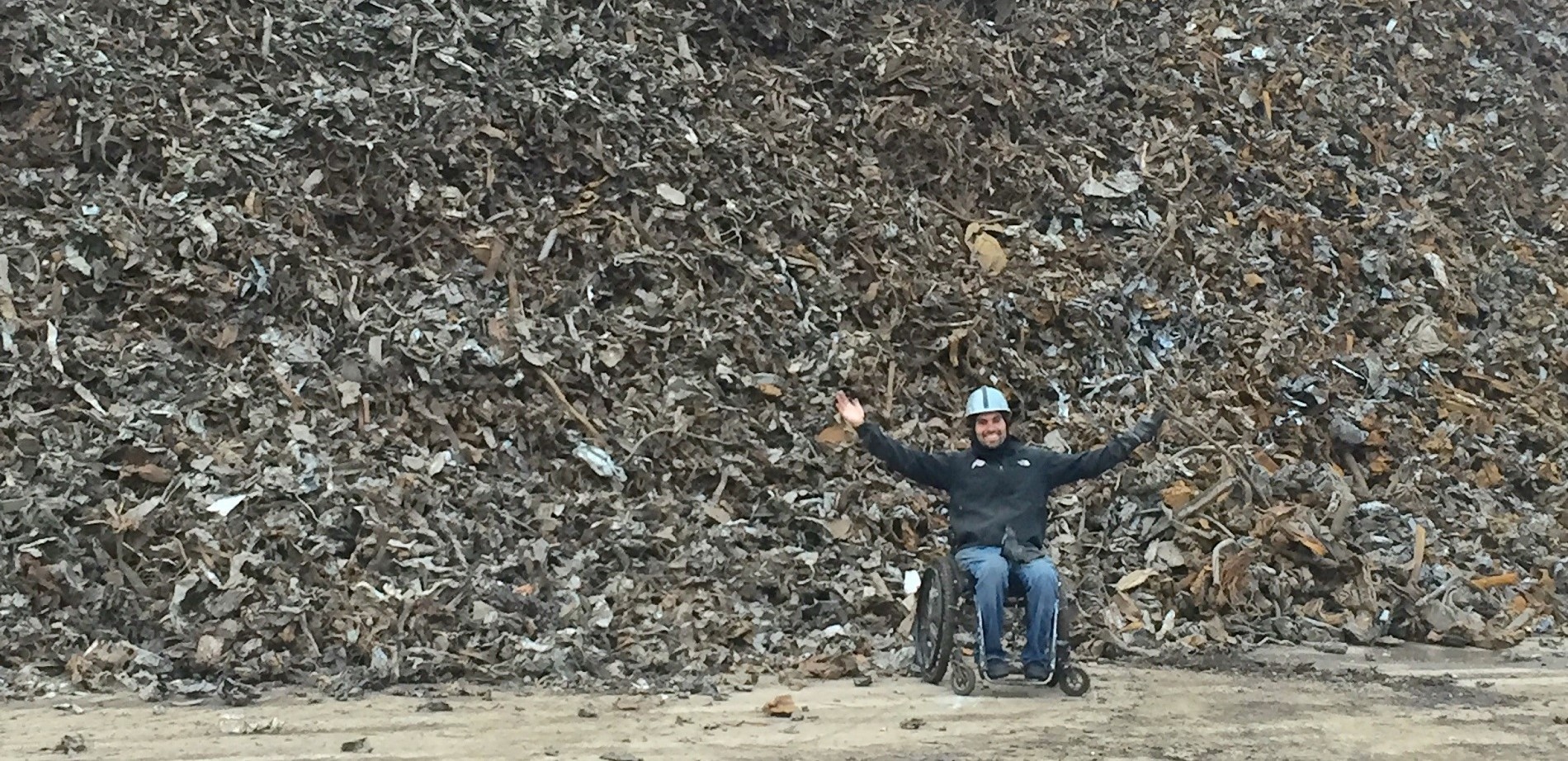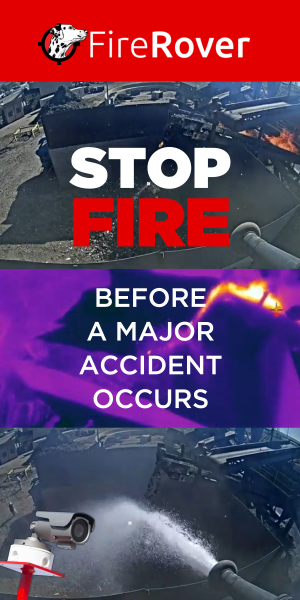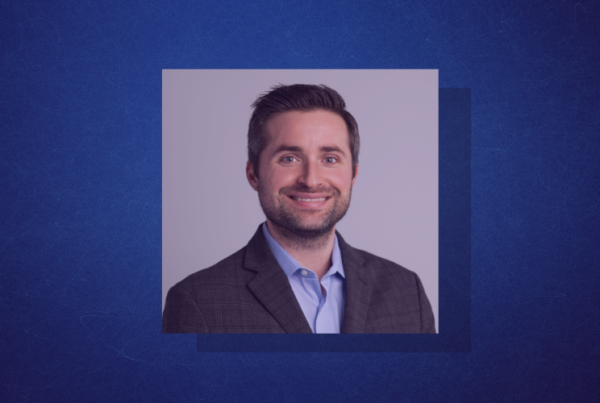When Anthony Bonilla attended an ISRI West Coast Chapter meeting a decade ago, he had no idea that it was the beginning of a journey that would lead to him to becoming the chapter’s president. In this edition of Faces of ISRI, Bonilla discusses his transition from the U.S. Army to the recycling industry, his path to becoming president of the West Coast chapter, and what he hopes to accomplish during his tenure.
What led you to working in the recycling industry?
I’m a third-generation scrap recycler, so I’ve always been a part of the industry. I started working at my family’s metal recycling company, Universal Service Recycling Inc., after school and on the weekends in middle school. After I graduated from high school, I enrolled in the Army, and spent several years in active duty, on multiple deployments as a counter intelligent agent with 5th group special forces. After I got injured, I came back to work for the company full-time and picked up where I left off.

Did you always envision yourself working in the industry?
My childhood dream was to be in the Army. I enlisted when I was 17 years old. I thought that by the time I was 37, I’d be able to retire and collect my full pension, and then jump back into the family business. I’ve always had a passion for recycling. It’s in my blood, so I knew I’d be in the industry once I returned from the Army.
What does your position as general manager / sales entail?
Since it’s a family business, I do pretty much everything. As the GM, I handle all the export sales and domestic sales. I handle all of the ocean freight, drayage freight, rail freight, and domestic freight. I’m also responsible for the dispatching for our fleet of trucks, tracking our export bookings, updating our ferrous and non ferrous yard and buying prices, and help out with Accounts Receivables, throughout all of our yards. Throughout my career I have done every job there is at our company, so I understand what goes into each specific job or task.
I’m an operations guy so I’m always out in the yard. We have five facilities. I spend most of my time here at our Stockton, Calif., headquarters where a lot of the volume comes in. We like to turn inventory fast so we’re not sitting on materials. Since I handle all the domestic and export sales, I’m well connected which helps the process. A lot of times I have material pre-sold, so as soon as it hits our inventory, it’s going back out. A lot of people wonder how we load 30 to 50 truckloads a day. I know what all our yards have in inventory, so I can coordinate all the material getting to Stockton. If I have 10 loads sold and I only have five in Stockton, I can reroute the rest of the material to get here, or route the containers to the other facilities.
How did you learn to do everything you do on a daily basis, and how long did it take?
A lot of my education came when I first started working here in high school. I’ve learned more and more over the years. I also participated in a few metals ID seminars in Los Angeles before I left for the Army, and those taught me a lot of the fundamentals. I’ve traveled to over 100 yards and mills, and every facility has something that there doing better than us, which I bring back and implement at one of our yards.
What was your introduction to ISRI, and what are some of your fondest memories from your time with the association?
Our company has been an ISRI member for almost 20 years. Approximately a decade ago, my family and I were at an ISRI chapter meeting in Oakland, and chapter leaders asked who was interested in joining the chapter. I was pretty shy, so my uncle volunteered me, and I accepted. I was added to the board of directors. It was that simple, just showing up to a meeting and getting nominated. I served on the board of directors for a few years and learned a lot during that time. Then I moved up to secretary. The last two years I served as the vice president of the chapter. In May, I was elected president.
I love to travel, so my favorite memories have been attending events across the country. I’ve had some great conversations at different events. The networking you can accomplish during events is invaluable. I attended my first in-person national board and committee meetings in July. I learned a lot and met so many new people in just five days. I only knew 5-10 people going into the meeting, but by the time I left I had met dozens of people.
Do you think you would’ve joined the chapter had you not been volunteered?
I think I would have eventually. When you go to a West Coast chapter meeting and look around the table, there’s probably 500+ years’ worth of combined experience there. Three members are past national chairs of ISRI’s board of directors, so it can be intimidating. Our chapter has some of the biggest recycling companies in the world. You look around the room and everyone’s been in the industry for decades. When I first started attending meetings, I was in my late 20s, and I was the youngest person there. As we’ve added new blood and people around my age to the chapter, I’ve seen the change and the next generation becoming more involved. And now that I’ve been a part of the chapter for 10 years, I’ve gotten more comfortable asking some of the industry veterans questions, and they’re always happy to help.
What are some things you want to accomplish during your tenure as president?
I want the chapter to be successful financially. We’ll also be hosting the Western Regional next year, which requires a lot of time and energy. I want that to be a great event for attendees.
Where do you see yourself in the next year, five years and beyond?
Eventually I see myself as the CEO of Universal Service Recycling. In my opinion, job titles don’t mean much, as everyone knows I’m the person at our company that can answer all the questions. With ISRI, I think I’ll always be a part of the West Coast chapter. It takes everyone’s participation to make the chapters matter, so I’ll always be involved. On the national level, we’ll see what doors open. I think I’ll find a way to be involved in some capacity.
Photos courtesy of Anthony Bonilla.










